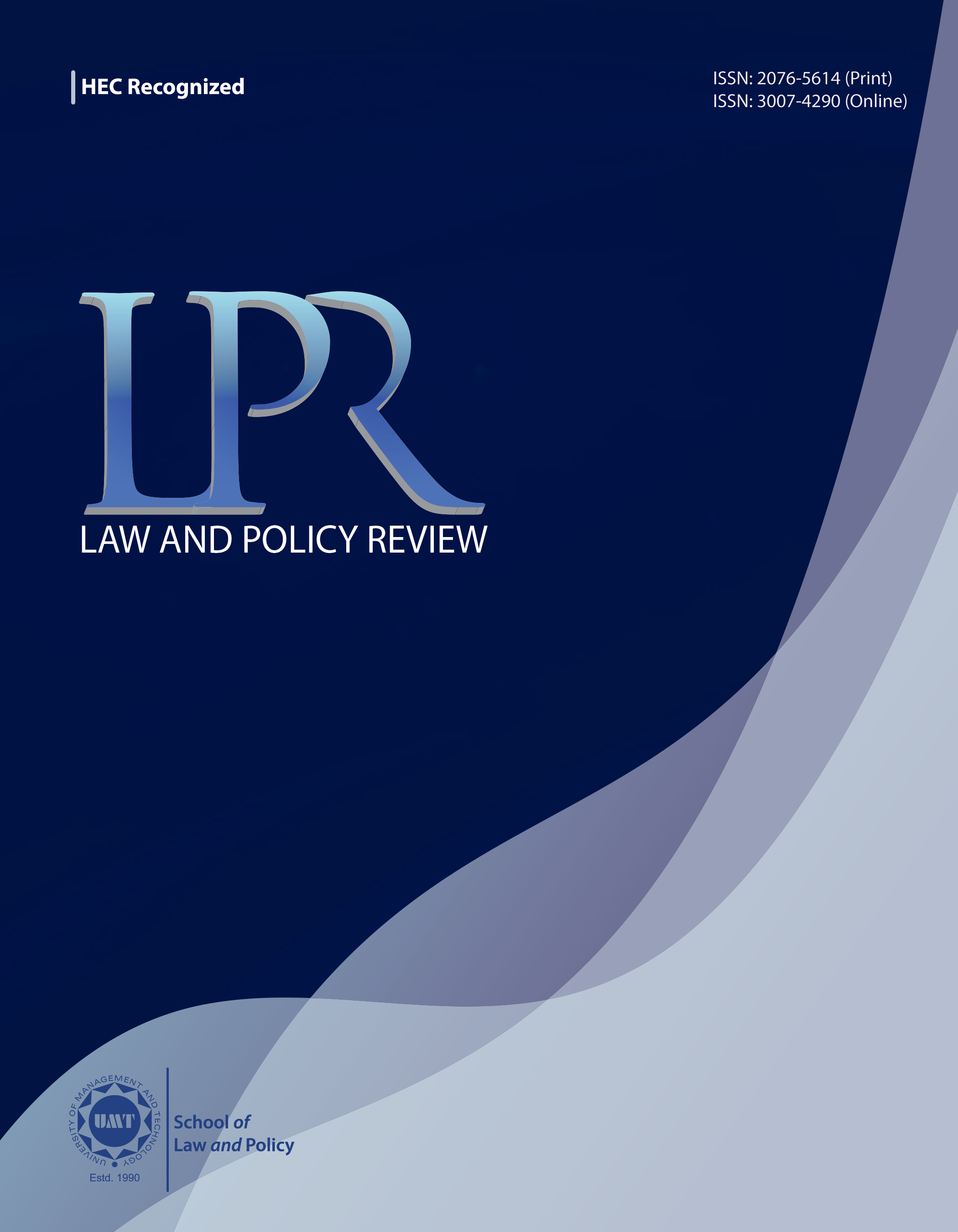Leveraging Artificial Intelligence in Cross-Cultural Mediation: Enhancing Neutrality and Efficiency in Dispute Resolution
Abstract
 Abstract Views: 0
Abstract Views: 0
International and bilateral relations are often challenged by cultural clashes that hinder communication and compromise the ADR and other legal frameworks. Such culture-related issues may result in suspicion, lack of faith, or rigid attitudes which makes mediation exceedingly difficult. Cross-cultural mediation, defined as dispute resolution that accounts for and integrates relevant cultural differences, has become increasingly important in those cases. While trained mediators are essential in navigating such issues, the additional use of Artificial Intelligence (AI) within Alternative Dispute Resolution (ADR) systems raises new levels of neutrality and efficiency. This research analyzes the impact of AI language models on cultural mediation, focusing on the mitigation of cultural biases, enhanced dispute communication, and advanced automated data dispute analysis. The study evaluates available global approaches and relevant legal documents aiming to demonstrate advantages and restrictions regarding the employment of AI in multi-faceted dispute resolution. The research also addresses an emerging gap in the literature, where the relationship between AI, culture, and ADR have received insufficient academic attention. Ultimately, this paper argues for a balanced approach: one that leverages AI as a support mechanism rather than a substitute for human judgment, while also advocating for modernized legal frameworks to ensure ethical, transparent, and culturally sensitive deployment of AI in mediation and conciliation.
Downloads
References
Aderemi, T. (2023, November 15). The transformative potential of Artificial Intelligence in ADR. Business Today. https://businessday.ng/news/legal-business/article/the-transformative-potential-of-artificial-intelligence-in-adr/
Alessa, H. (2022). The role of artificial intelligence in online dispute resolution: A brief and critical overview. Information & Communications Technology Law, 31(3), 319–342. https://doi.org/10.1080/13600834.2022.2088060
Alsamhan, E. (2023). AI and online dispute resolution: Mediation. Journal of Scientific Development for Studies and Research, 4(13), 283-300.
Bagshaw, D. (2015). Mediation in the world today: Opportunities and challenges. Journal of Mediation and Applied Conflict Analysis, 2(1), 283–300.
Bahgat, G. (2010). Iran's role in Europe's energy security: An assessment. Iranian Studies, 43(3), 333–347.
Barnett, J., & Treleaven, P. (2018). Algorithmic dispute resolution—The automation of professional dispute resolution using AI and blockchain technologies. The Computer Journal, 61(3), 399–408.
Cortes, P. (2010). Online dispute resolution for consumers in the European Union. Routledge.
Federation of Pakistan through D.G National Training Bureau v. James Construction Company PLD Islamabad ¬___ (2018)
Gold, J. A. (2005). ADR through a cultural lens: How cultural values shape our disputing processes. Journal of Dispute Resolution, 2005(2), 289–321.
Gonzalez, N. L. (2021). The impact of culture on business negotiations. Grand Valley State University. https://scholarworks.gvsu.edu/honorsprojects/839/
Hall, M. J. J., Calabro, D., Sourdin, T., Stranieri, A., & Zeleznikow, J. (2005). Supporting discretionary decision-making with information technology: A case study in the criminal sentencing jurisdiction. University of Ottawa Law & Technology Journal, 2005(2), 1–36.
Inman, M., Kishi, R., Wilkenfeld, J., Gelfand, M., & Salmon, E. (2013). Cultural Influences on Mediation in International Crises. Journal of Conflict Resolution, 58(4), 685–712. https://doi.org/10.1177/0022002713478565
Karachi Dock Labour Board v. Quality Builders Limited, PLD SC 121 ___ (2016)
Kulmuhametov, I. (2023, October 26). Chat GPT in legal industry. Yojji. https://yojji.io/blog/chat-gpt-in-legal-industry
Lodder, A. R., & Zeleznikow, J. (2012). Artificial intelligence and online dispute resolution. In D. Rainey, A. A. Wahab & E. Katsh (Eds.), Online dispute resolution-theory and practice: A treatise on technology and dispute resolution (pp. 61–82). Eleven Publishers.
Mackie, K. J., & Mackie, K. (2013). A handbook of dispute resolution: ADR in action. Routledge.
Mrs Yaseen versus Messers Beach Developers, YLR 1109 ___ 2003
Nally, C. (1995). An exploration of theoretical issues related to mediation found in the social science literature [Master’s thesis, Portland State University]. Pdxscholar. https://pdxscholar.library.pdx.edu/open_access_etds/4936/
Poole, C. K. (2024, January 31). The use of AI in ADR: Balancing potential and pitfalls. JAMS ADR Insight. https://www.jamsadr.com/blog/2024/the-use-of-ai-in-adr-balancing-potential-and-pitfalls
Ridley-Duff, R. (2010, September 14–16). Mediation: Developing a theoretical framework for understanding alternative dispute resolution [Paper presentation]. Proceedings of British Academy of Management conference, Sheffield, United Kingdom.
Sander, F. E. (1985). Alternative methods of dispute resolution: An overview. Florida Law Review, 37(1), 1–18.
Shamir, Y., & Kutner, R. (2016). Alternative dispute resolution approaches and their application. UNESCO Digital Library. https://unesdoc.unesco.org/ark:/48223/pf0000133287
Sourdin, T. (2018). Judge v robot? Artificial intelligence and judicial decision-making. University of New South Wales Law Journal, 41(4), 1114–1133.
Srivastava, S. (2021). Implementation of artificial intelligence in arbitration [Master's thesis, University of Oslo]. DUO Research Achieve. https://www.duo.uio.no/handle/10852/92206
Sucharitkul, S. (2001). Mediation and conciliation as alternative means of settling international disputes. GGU Law Digital Commons. https://digitalcommons.law.ggu.edu/pubs/557/
Susskind, R. (2019). Online courts and the future of justice. Oxford University Press.
Taherdoost, H., & Madanchian, M. (2023). Artificial intelligence and sentiment analysis: A review in competitive research. Computers, 12(2), Article e37. https://doi.org/10.3390/computers12020037
Zeleznikow, J. (2021). Using artificial intelligence to provide intelligent dispute resolution support. Group Decision and Negotiation, 30(4), 789–812.
Weiler, P. (1968). Two models of judicial decision-making. Canadian Bar Review, 46(3), 406–471.
Wenying, W. (2005). The role of conciliation in resolving disputes: A P.R.C. perspective. Ohio State Journal on Dispute Resolution, 20(2), 421–450.
Wu, X., Duan, R., & Ni, J. (2023, July 26). Unveiling security, privacy, and ethical concerns of ChatGPT. Journal of Information and Intelligence, 2(2), 102–115. https://doi.org/10.1016/j.jiixd.2023.10.007
Zarefsky, M., & Kahn, J. (2024). Assessment of the impacts of artificial intelligence (AI) on intercultural communication among postgraduate students. Scientific Reports, 14(1), Article e13849. https://doi.org/10.1038/s41598-024-63276-5
Copyright (c) 2025 Syed Shaharyar Ahmed, Mian Johar Imam, Muhammad Sheharyar Iftikhar

This work is licensed under a Creative Commons Attribution 4.0 International License.
LPR follow an open-access publishing policy and full text of all published articles is available free, immediately upon publication of an issue. The journal’s contents are published and distributed under the terms of the Creative Commons Attribution 4.0 International (CC-BY 4.0) license. Thus, the work submitted to the journal implies that it is original, unpublished work of the authors (neither published previously nor accepted/under consideration for publication elsewhere). On acceptance of a manuscript for publication, a corresponding author on the behalf of all co-authors of the manuscript will sign and submit a completed the Copyright and Author Consent Form.





